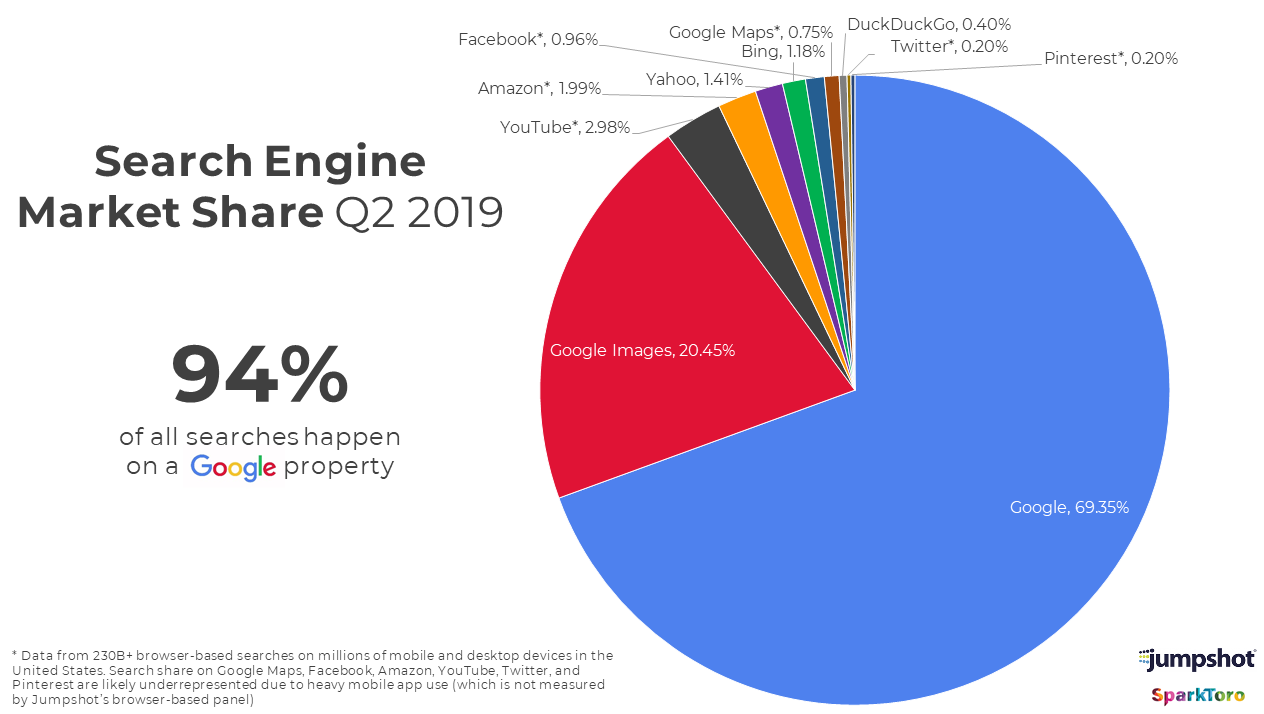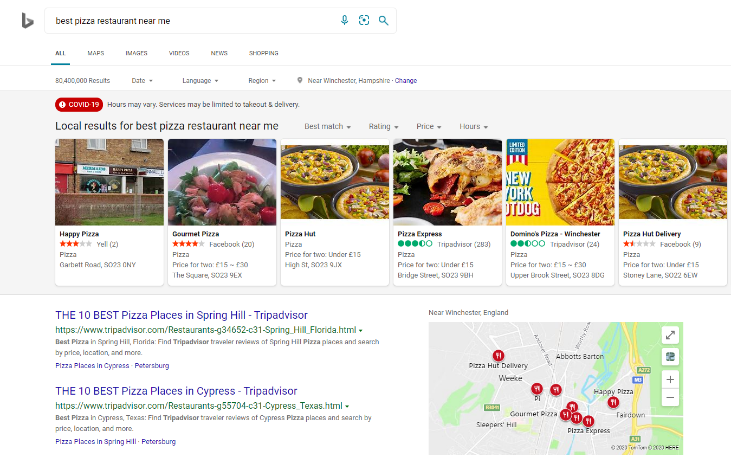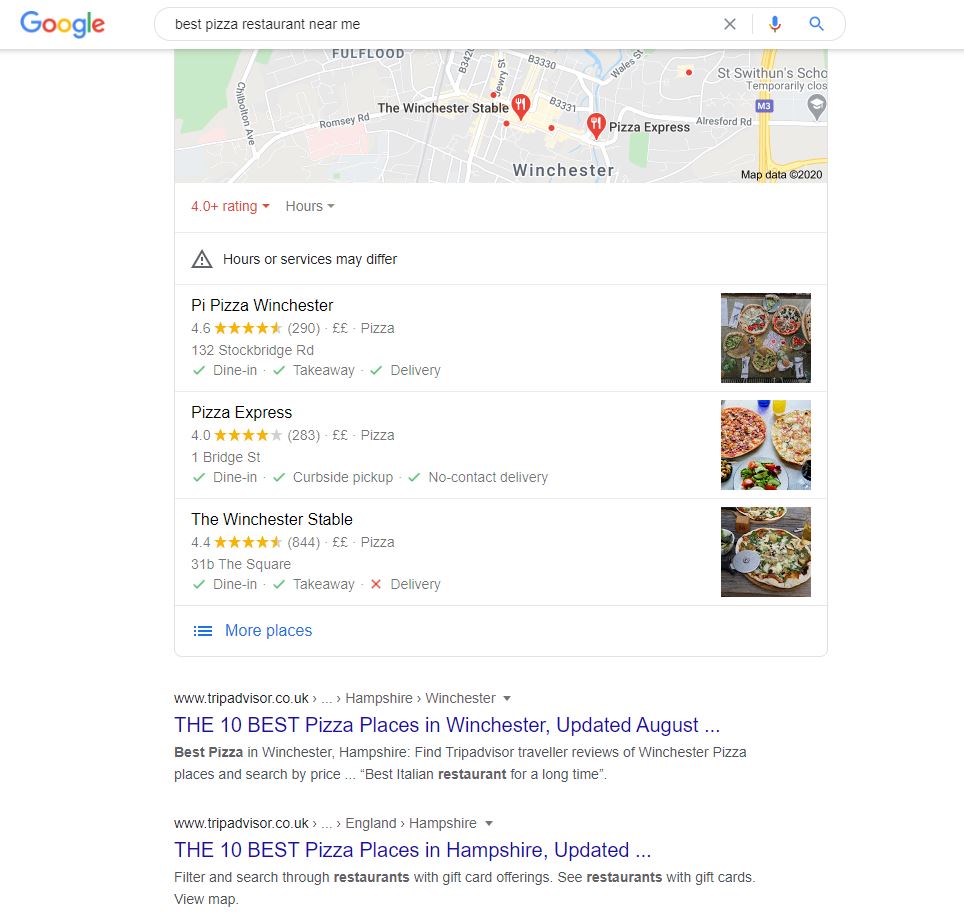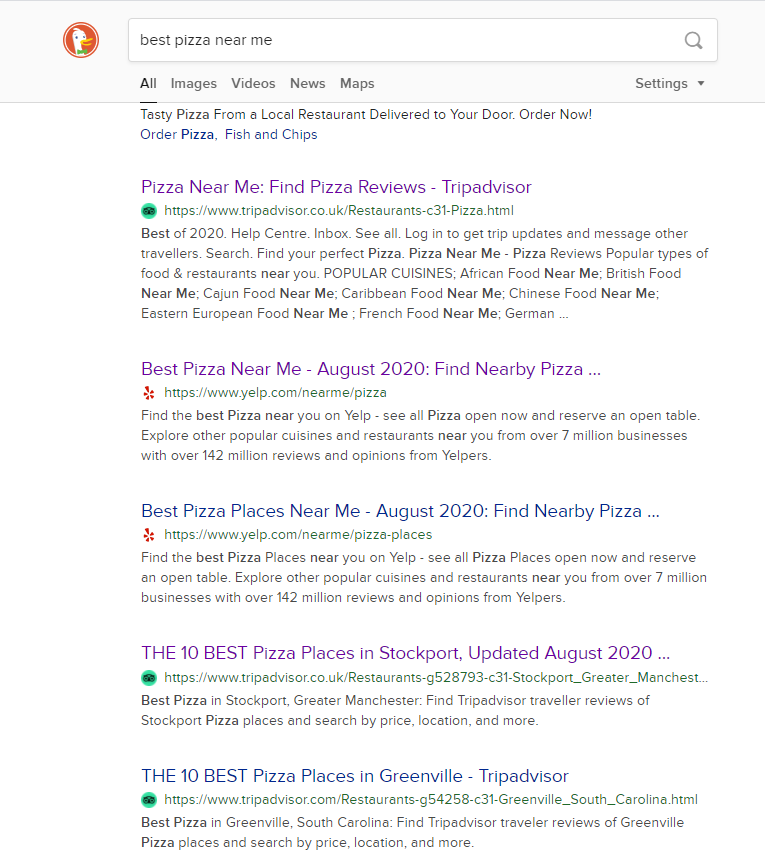Alternative Search Engines to Google – The Good, The Bad & The Ugly
What is a search engine?
A search engine is a programme created to serve users content relevant to their search intent and requirements. At a basic level, they are described as identifying items in their “database” that correspond to keywords or characters specified by the user.
The very first “search engine” was the Archie Query Form, due to space limitations, this only displayed listings and not the contents of each website. Since 1990 however, we have seen the birth, peak and demise of many search engines, and perhaps the most notable, the creation and constant evolution of Google.
Why is Google so popular?
In 2019, Google-owned property had a 94% share of all searches in the US. So, why is Google so popular in comparison to the alternative search engines available?
Since its creation, Google has been constantly evolving through the creation of new and updated algorithms, working to provide the absolute best user experience possible.
Put simply, their users are at the heart of everything they do, whether it be the introduction of mobile-first indexing brought around by the significant number of mobile searches taking place, to finding the most relevant websites for your query.
They cater to our ever-dwindling attention span when it comes to receiving the most relevant information to us in the shortest time frame possible, and the search engine results pages reflect this.
Google offers local search, enabling users to be significantly less specific with their search terms and still be provided with the most relevant product or service based on a combination of geo-proximity and search intent.
This has been advanced further with the introduction of Google My Business, enabling users to search for a product or service whilst navigating Google Maps on their smartphone.
Google offers management of various ad types all from one central ad platform. There is fantastic support available for “Google Partners” like ourselves when it comes to paid advertising and they offer the ability to display ads across the entirety of their display network if you so wish.
We could go on, but for the purpose of this article, we will keep it short, in summary, Google’s accuracy, updates and user-first business model are just some of the reasons why is it so popular in comparison to alternative search engines available.
What are the alternative search engines to Google?
Is Bing a good alternative search engine to Google?
As one of the biggest alternative search engines to Google, Bing does have a few features that we think may just pip Google’s.
What we like
Bing’s media search is, on par with and in some people’s opinions, better than Google’s. The quality of images displayed in their image search is fantastic and they were also the very first search engine to invent the “infinite scroll”.
Bing also allows you to filter your image search by colour, size, layout and more. A helpful feature should you be looking for that one specific image that you can just never seem to find!
Their video search function is also something to take note of, allowing users to view videos without even leaving the page of thumbnails.
Bing allows paid media consultants to import Google ad campaigns straight into their very own ad platform and also have an excellent team on hand to work alongside paid teams and achieve the very best results from each campaign.
Perhaps our favourite reason to use Bing as an alternative search engine to Google is because of “Microsoft Rewards”. In short, you are able to earn points that are redeemable at hundreds of stores by simply searching on Bing. Who doesn’t like free money?
What we don’t like so much
Firstly, and probably most importantly, is its locational accuracy. We performed a simple search of “best pizza restaurant near me”, aside from the local listings, which we will move to next, the search listings displayed were for the best pizza in Spring Hill, Florida and Cypress, Texas. Our search location, – Winchester, United Kingdom.
Bing provides a slightly different search interaction to Google, as would be expected. Take the same search for “best pizza restaurant near me” for example. When searched on Bing, you see a scrolling banner of potential options, all with reviews from different platforms. Whilst they do have a map as well as the visual listings, they are not integrated, meaning you must view the thumbnail/reviews and then locate the same restaurant on the map below.
There is still a portion of users who opt for Bing over Google. This is something to consider in your SEO and paid media efforts, as well as your local SEO efforts. Remember to set up your Bing business listing and optimise it accordingly as well as consider taking advantage of the often lower click costs on Bing in comparison to Google when it comes to your PPC campaigns. You never know who might be using the search engine and you don’t want to risk missing business.
Is DuckDuckGo a good alternative search engine to Google?
DuckDuckGo was first launched in 2008 and pride themselves on user privacy and the fact that they do not “profile” users, showing each individual the same results as the next, whatever their searching habits.
What we like
DuckDuckGo offers users the ability to both shorten and expand URLs, whether you want to identify which websites are at the end of a link that has already been shortened or shorten one yourself, DuckDuckGo has you covered here.
Perhaps one of our favourite features of DuckDuckGo as an alternative search engine is its ability to tell you whether a website is down without you needing to even leave the search engine. Simply type “is example.com down for me” and it should give you a brief rundown of the URL in question.
DuckDuckGo rarely uses quick answers such as “People also ask” as Google does. People have estimated that as much as 50% of searches on Google now do not end in a click because of these display panels in SERPs. So, whilst your content may be ranked first for the question being posed, the user could end up not ever reaching your website. DuckDuckGo, on the other hand, does not make use of such panels and therefore could mean website owners see higher click-through-rates for quick answer type terms in DuckDuckGo.
What we don’t like so much
Whilst their user’s privacy is a selling point for DuckDuckGo, some people are not a fan of its inability to personalise search results based on your search history. This business model, in our opinion, makes it more difficult for users to locate the exact information they are searching for.
We performed the “best pizza near me” check on the search engine and were once again, a little disappointed. Within the top 5 organic search results, we were provided with one page from Greater Manchester, UK and the other for Greenville, South Carolina. Again, our search location, – Winchester, UK.
So, are there any search engines that are good alternatives to Google?
Whilst we are aware this is by no means a comprehensive list of the alternative search engines available to the internet users of today, we wanted to turn our focus to the two alternatives that we are asked about most frequently.
Below is a list of some other Google alternatives that you may like to consider:
Yandex – A Russian owned search engine
Swisscows – A “family-friendly” semantic search engine
Search Encrypt – A private search engine using local encryption
Ecosia – An eco-friendly search engine planting trees whilst you search
Dogpile – A combination of the results from Google, Yahoo & Bing
Baidu – The search engine of choice for most of China’s internet users
In our opinion, as a long-standing and loyal Google and Microsoft Ads Partner, we would tend to lean towards the use of both Google and Bing due to their ability to customise SERPs based on your search trends, their seamless ad platforms, user first algorithms and additional tools and features available to both businesses and individuals.












